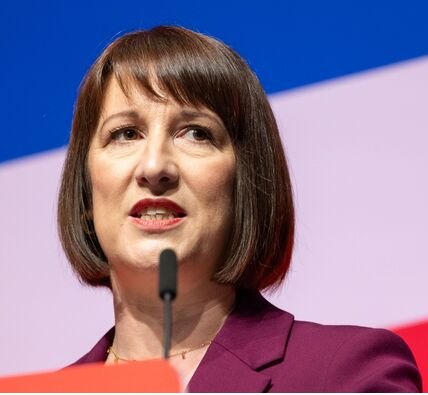
Rachel Reeves has proven the Labour Party to be vindictive (Image: PA)
The fallout from the Chancellor’s explosive Budget continues to reverberate across the political landscape. Colossal in its scale, vindictive in its targets, Rachel Reeves’ unprecedented cash grab looks certain to send Britain into decline by undermining our competitiveness and living standards. Under Labour’s ill-judged rule over the coming years, growth will be too low, debts too high, and the state too big.
In the run-up to the General Election, Sir Keir Starmer claimed that he led a “changed” party which would govern from the centre, foster wealth creation and promote fiscal restraint. How hollow those pledges now sound. Rarely in British history has an incoming Government been so dishonest about its intentions.
It is now clear that the stance of moderation was cynically designed to mislead voters, while Reeves and Starmer plotted a return to full-blooded socialism, where the private wealth and enterprise are ruthlessly plundered to provide cash for a bloated, inefficient public sector run in the narrow interests of its workforce rather than the needs of the country.
The impulse to deceive the public is fast becoming one of the hallmarks of this Government. Even the normally restrained Institute for Fiscal Studies accused Reeves of indulging in “silly manoeuvres” to conceal the impact of her policies, while Labour have resorted to endless linguistic gymnastics about the definition of “working people” to distract attention from the breach of the party’s promise not to increase national insurance.
Similarly, before the Budget, Labour sternly warned that there would be no extra cash for the mismanaged, crisis-ridden NHS without radical reform. Yet this week the service was handed an additional £25 billion without any conditions.
But worse than the dishonesty is the economic illiteracy. In their attack on aspiration and its worship of big government, Labour are resorting to the failed socialist policies of the past. One of Starmer’s first acts as Prime Minister was to remove Margaret Thatcher’s portrait from 10 Downing Street.
Now, alongside Reeves, he wants to overturn her legacy by dragging Britain back to its pre-Thatcherite existence of the 1970s when the trade unions and bureaucrats were in charge, and soaring taxes paralysed the economy. She famously declared that she aimed to “roll back the frontiers of the state.” He and Reeves plan to roll them forward again.
Labour seem to have learnt nothing from our recent history. Most people with memories of the time think of the 1970s as a dark episode, when Britain was known as “the sick man of Europe” because of industrial turmoil and economic stagnation.
But Starmer’s Cabinet appears to regard the period as a kind of golden age, the last manifestation of true socialism before the advent of Thatcherism. Through the prism of ideologically-fixated nostalgia, the actions of the Labour Government be the past between 1974 and 1979 serve, not as a warning from the past but a blueprint for action.
Reeves’s gargantuan tax hike certainly has an echo of the institutionalised larceny of the socialist 70s, when the top rate of income tax on pay over £20,000-a-year reached 83 per cent. In fact, when coupled with the 15 per cent surcharge on “unearned” income like dividends, the effective highest rate reached 98 per cent, thereby fulfilling the threat by the Chancellor Denis Healey “to squeeze the rich till the pips squeeze.”
Just like today, this legalised extortion was needed to prop up the vast state machine, the expenditure on which had shot up from 40 per cent of GDP in 1974 to 46.5 per cent in 1976. But, as Reeves is discovering, even the most savage tax regimes do not bring in enough revenue to meet the costs of socialism, so government borrowing soared.
As debts ballooned, Britain began to slide towards national bankruptcy, a humiliating fate averted when Healey negotiated a huge £4 billion loan from the International Monetary Fund to bail out the Treasury. The price of the loan was not only heavy cuts in spending but also lasting damage to the Government’s credibility.
What made this desperate resort to the begging bowl all the more shameful was that the splurge in cash was doing nothing to improve the country. On the contrary, much of the largesse was squandered on huge public sector pay claims that fed a frenzied cycle of inflation, greed and strikes.
At one stage in 1975, inflation reached 26 per cent, while in 1979 no fewer than 29 million working days were lost to industrial action. Starmer’s lavish pay awards to train drivers, junior doctors and other public sector workers can be seen as a worrying portent of things to come under this 70’s retro government, just as the plan to give more powers to the unions under the guise of workplace rights will be a recipe for more turmoil.
In another disturbing parallel with the present, vast amounts of money were frittered away in the 70s on ever expanding welfare and bureaucracy.
The Labour Government massively expanded social security through measures like the introduction of child benefits, as well as nationalising entire sectors and creating a plethora of new quangos like the Commission for Racial Equality and the Health and Safety Executive. That spirit of statist empire-building is resurgent today in the creation of new nationalized industries like Great British Energy.
The 70s Labour Government ended in the chaos of the Winter of Discontent, followed by a long stint in the wilderness for Labour. After the disaster of this week’s, the prospects for Starmer and Reeves look equally grim.




